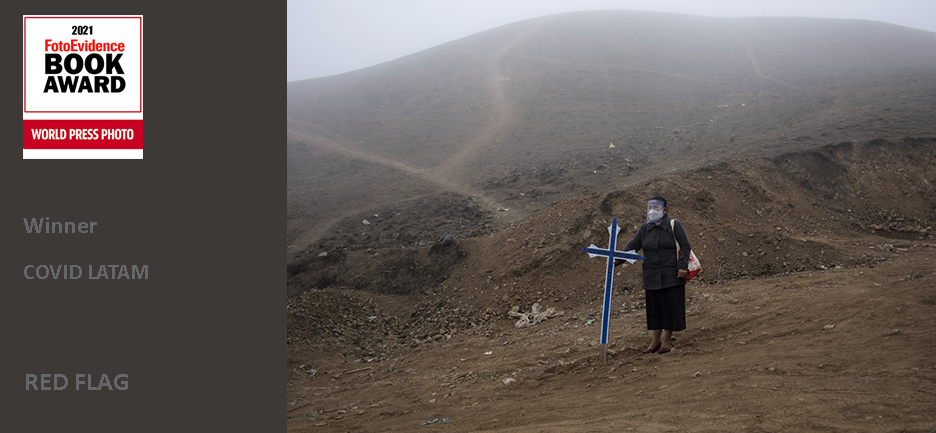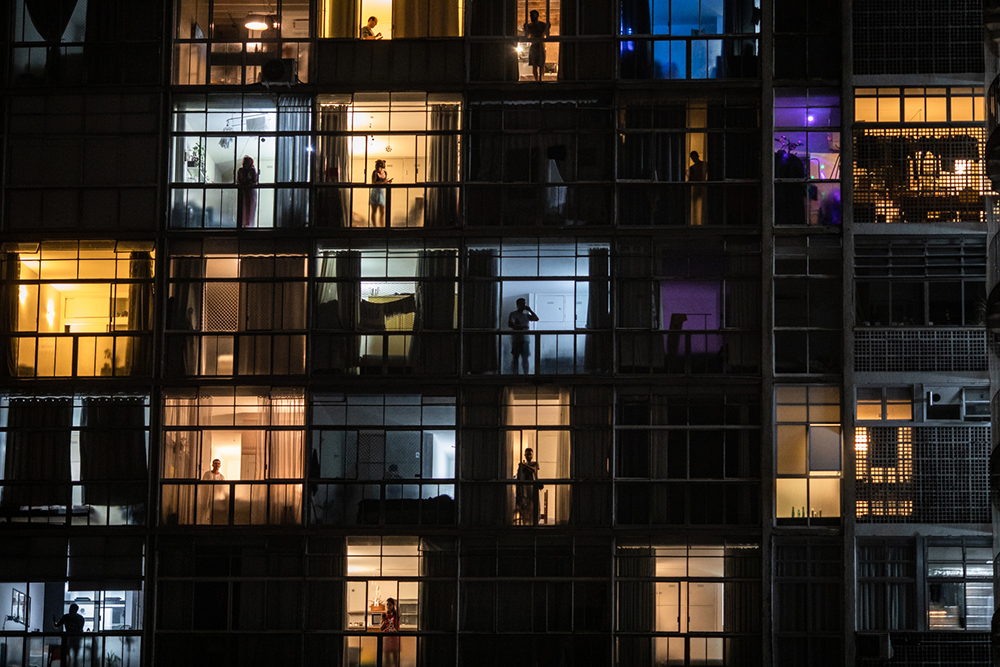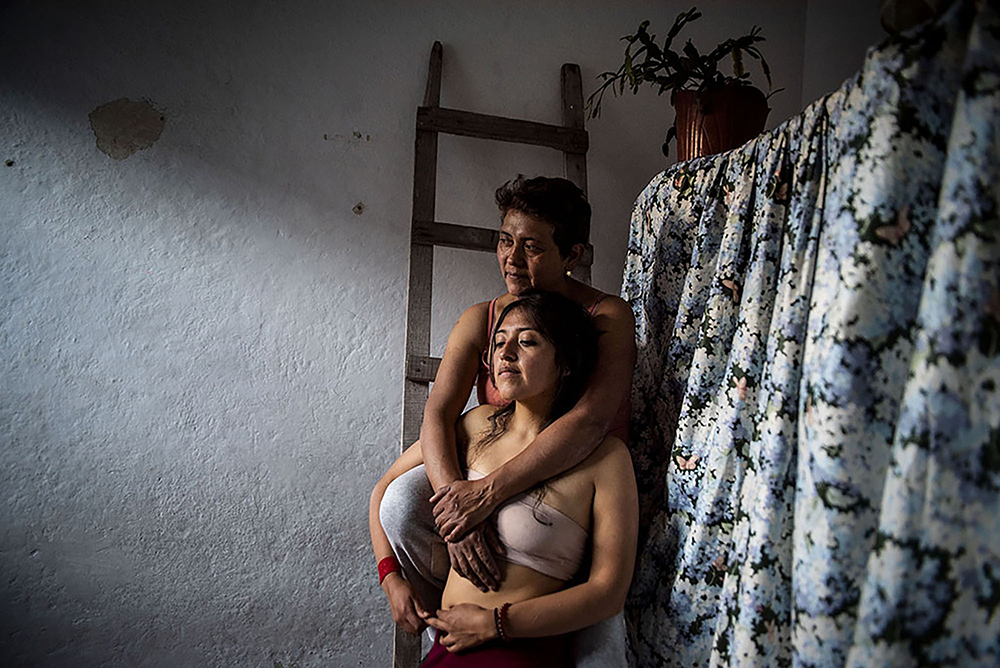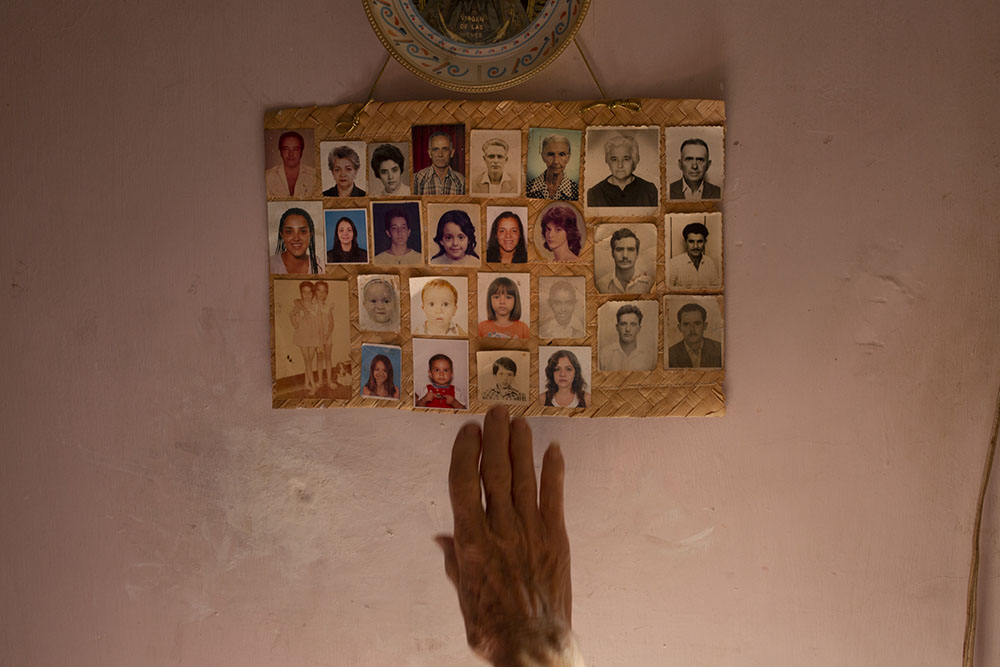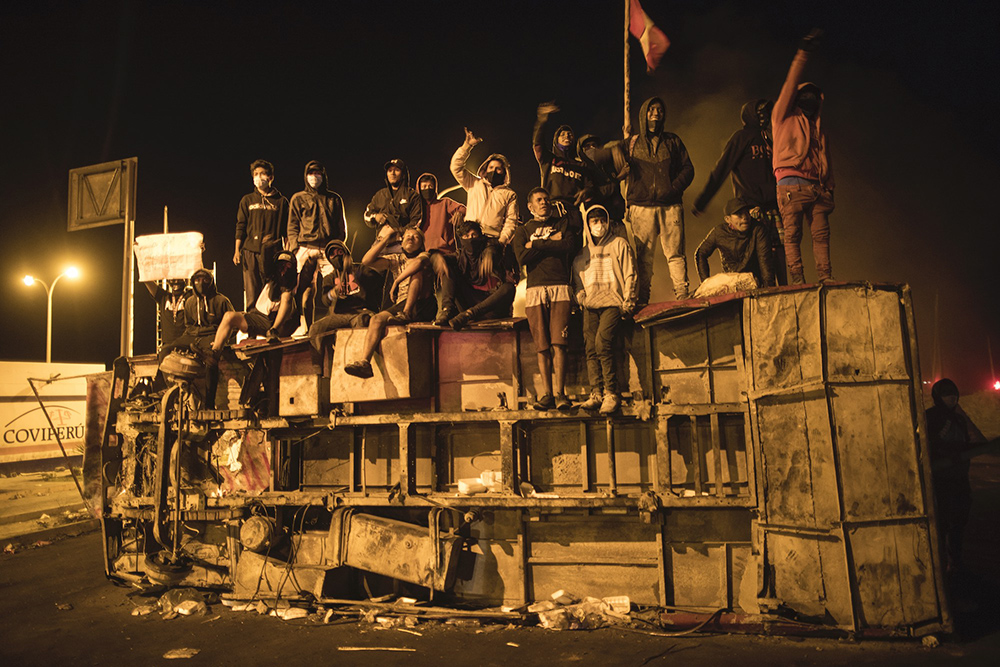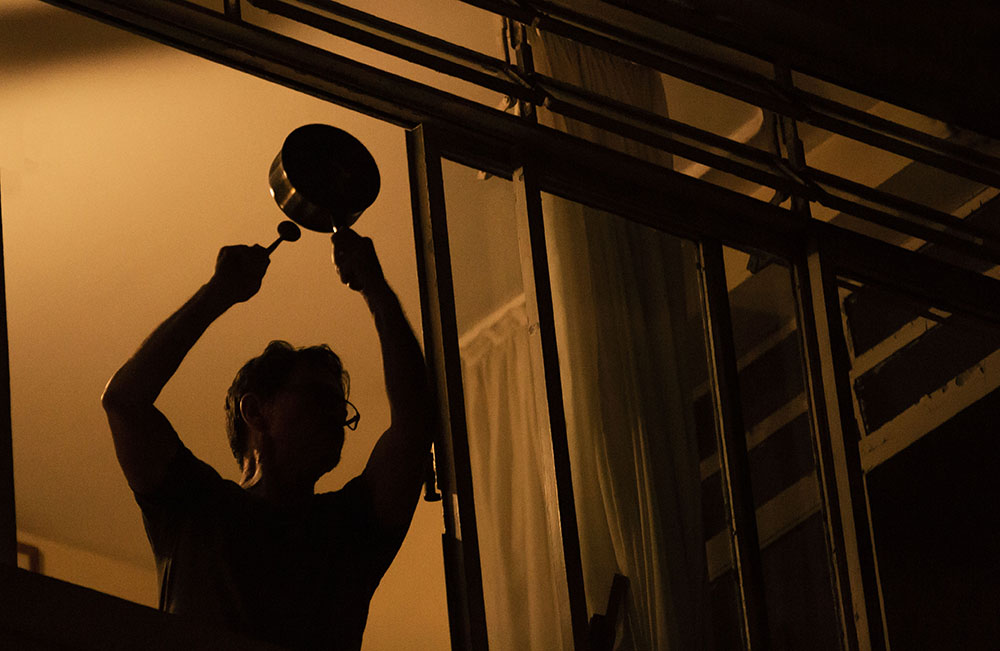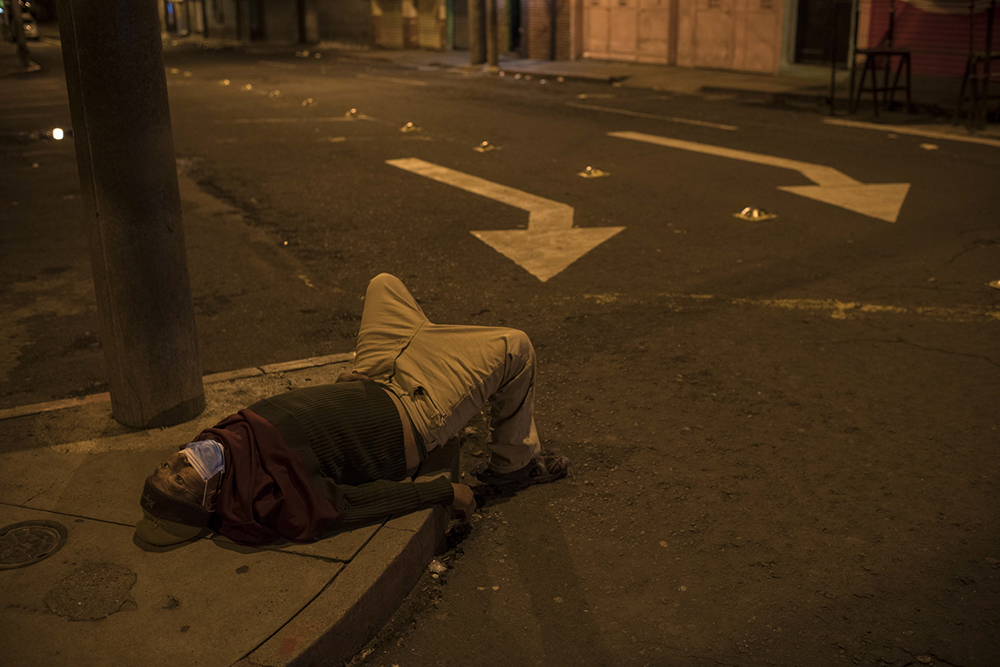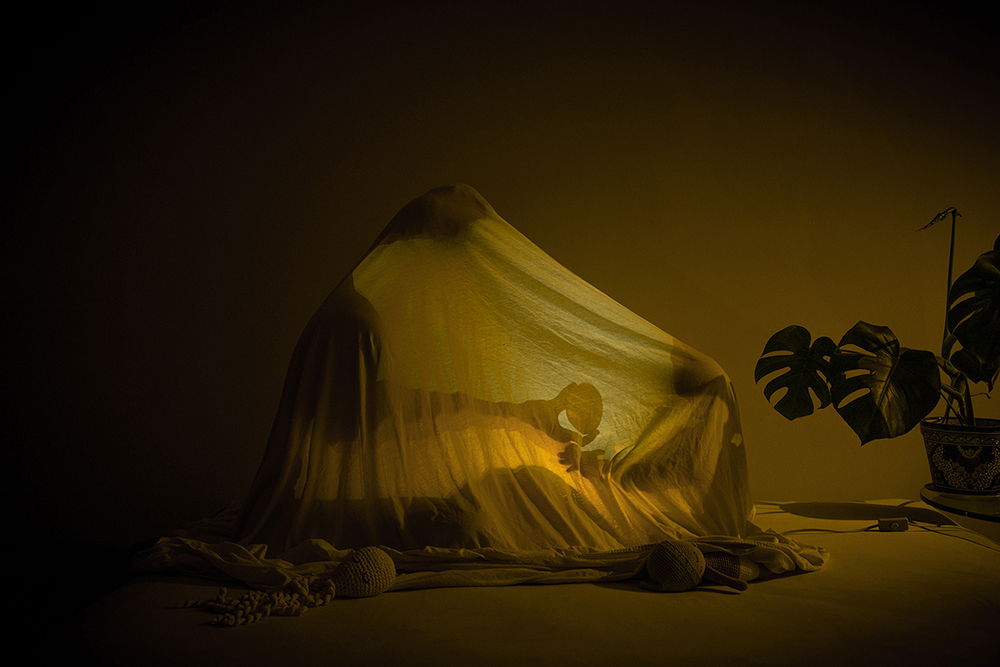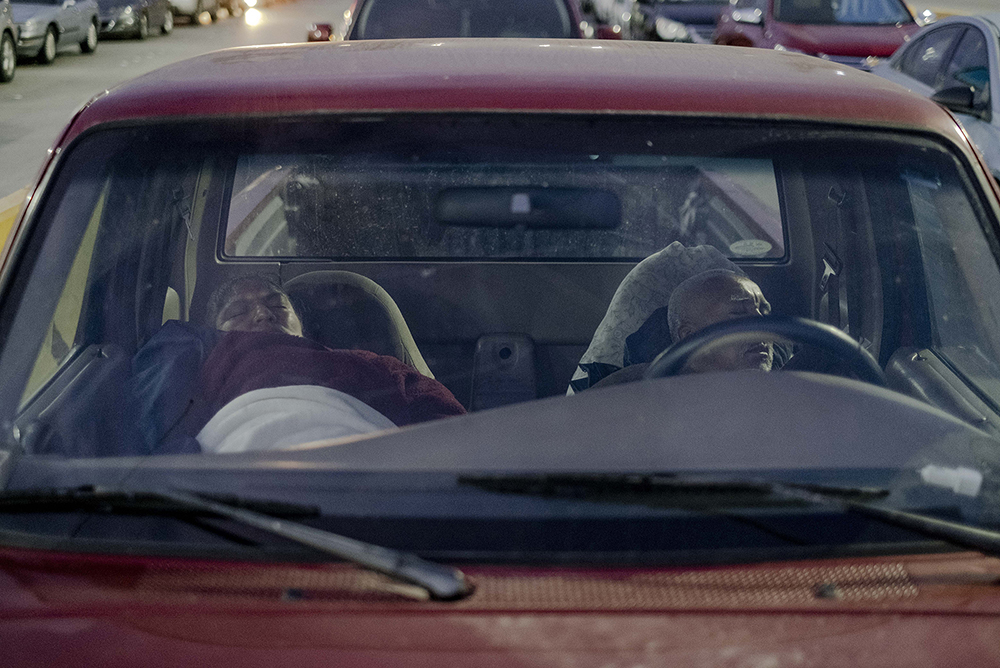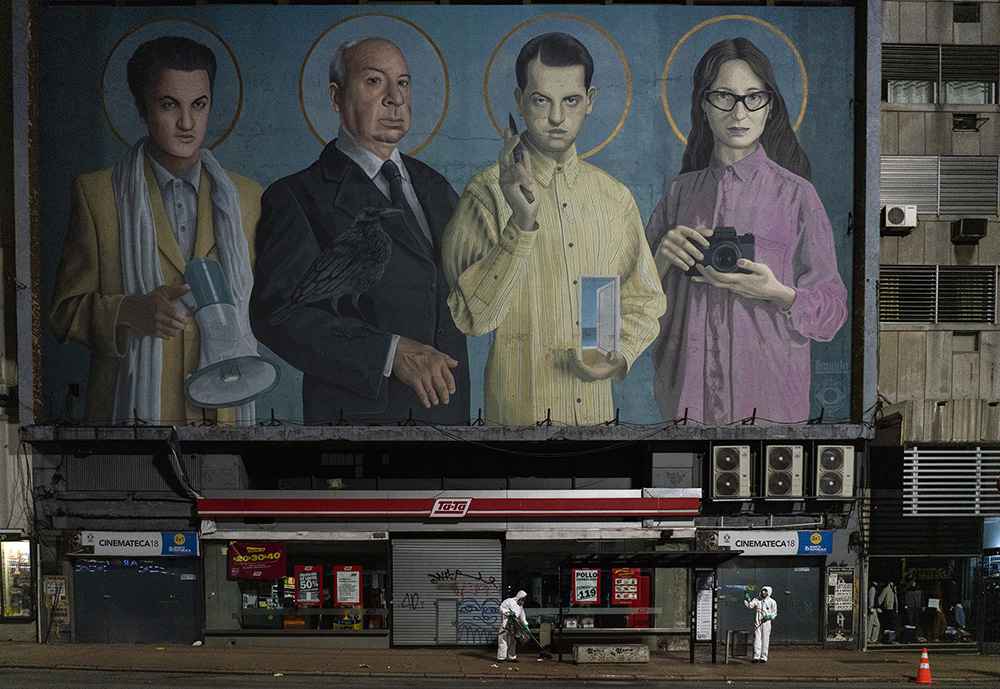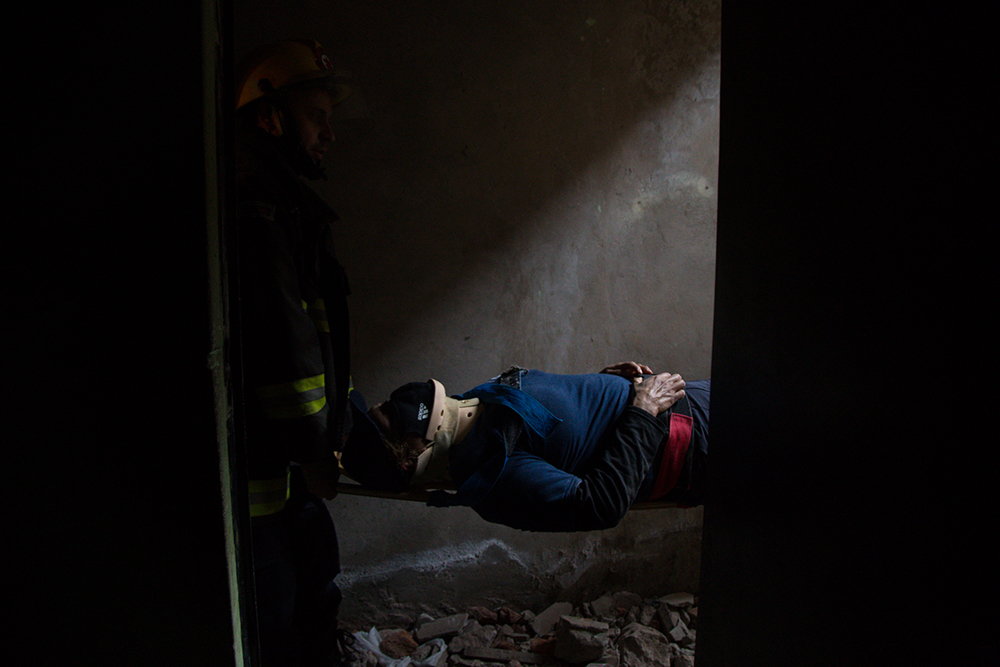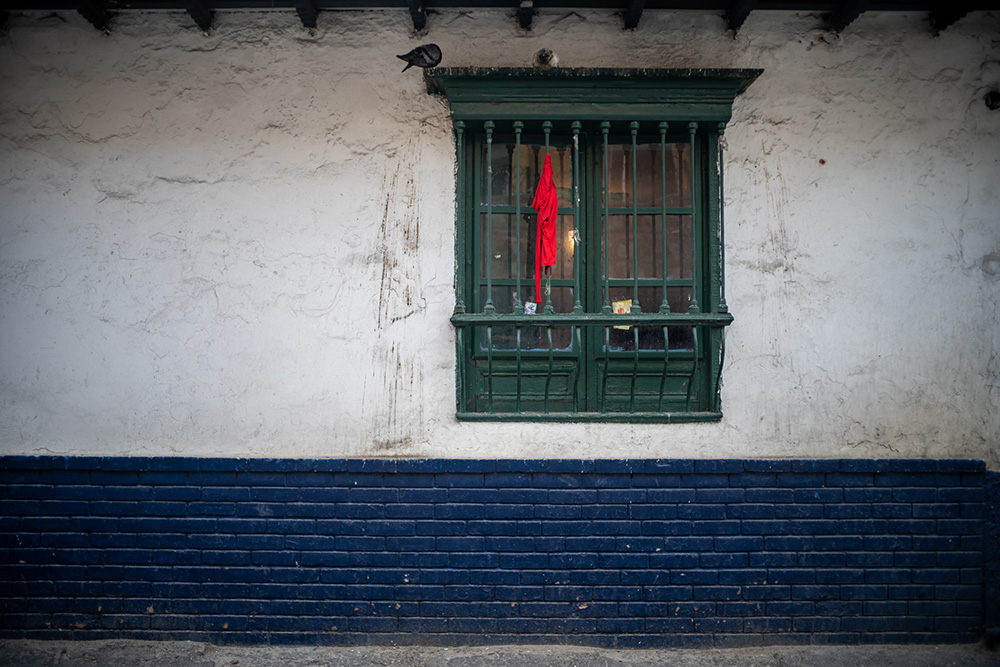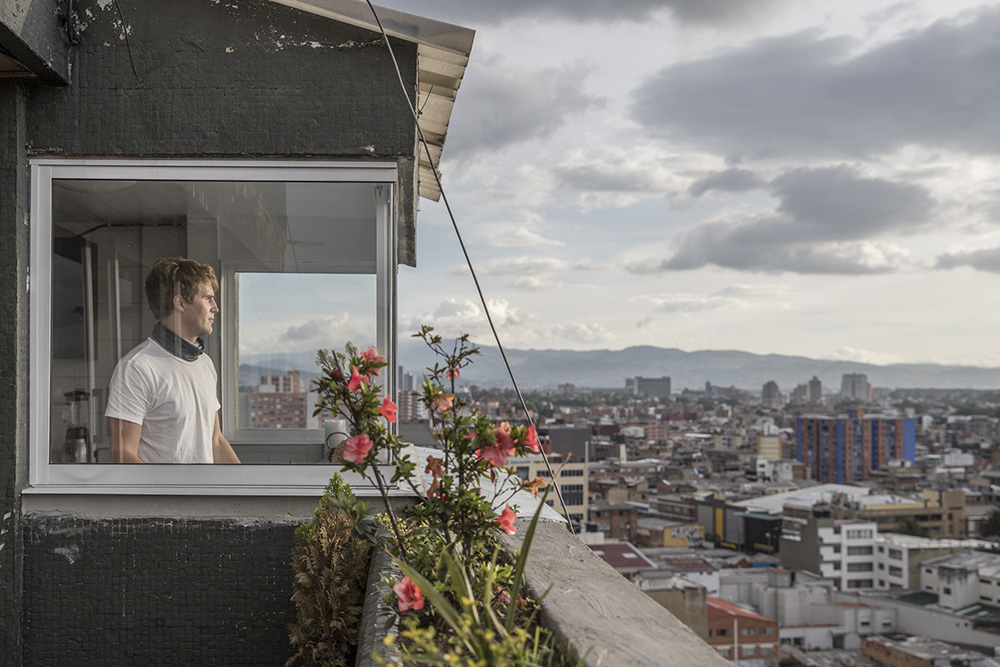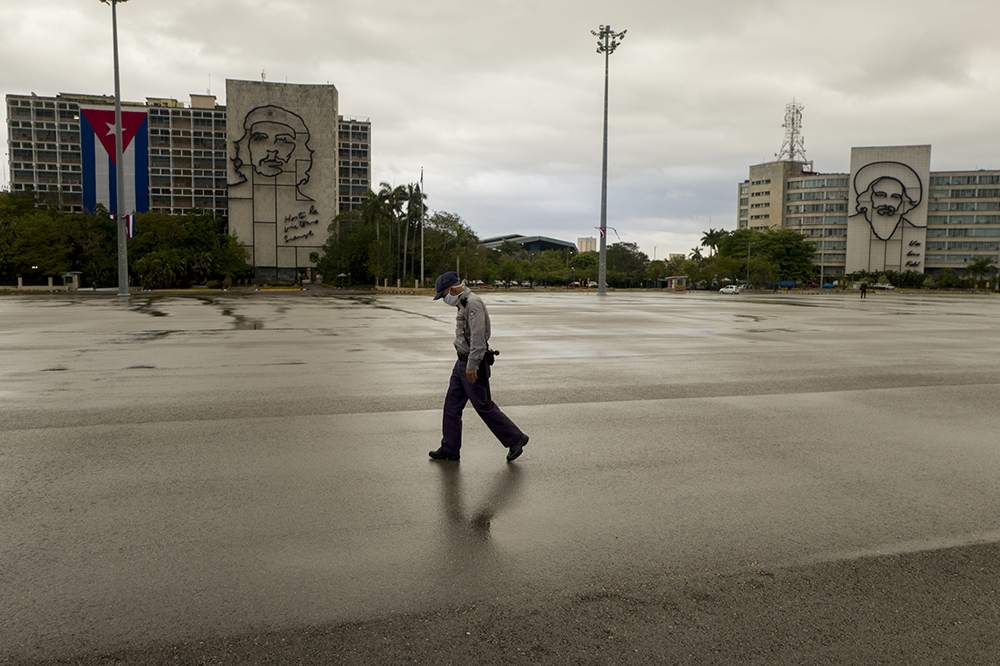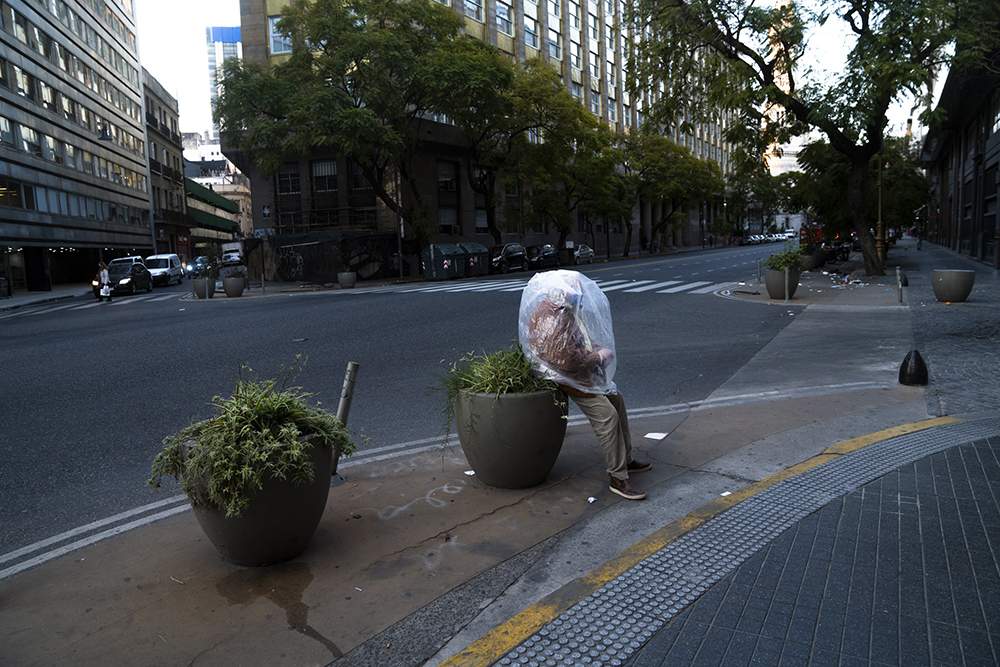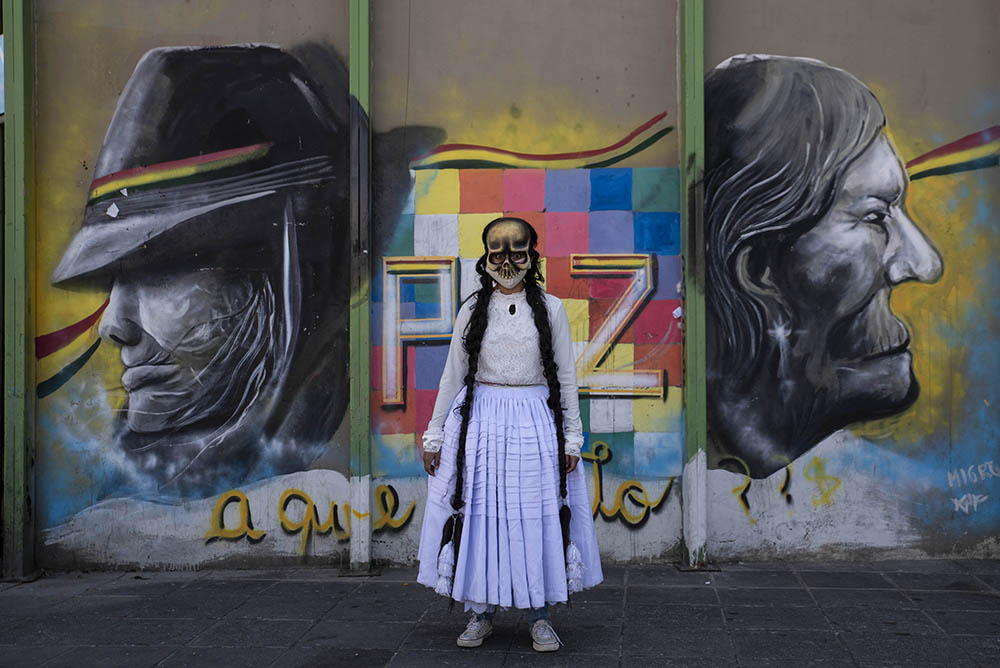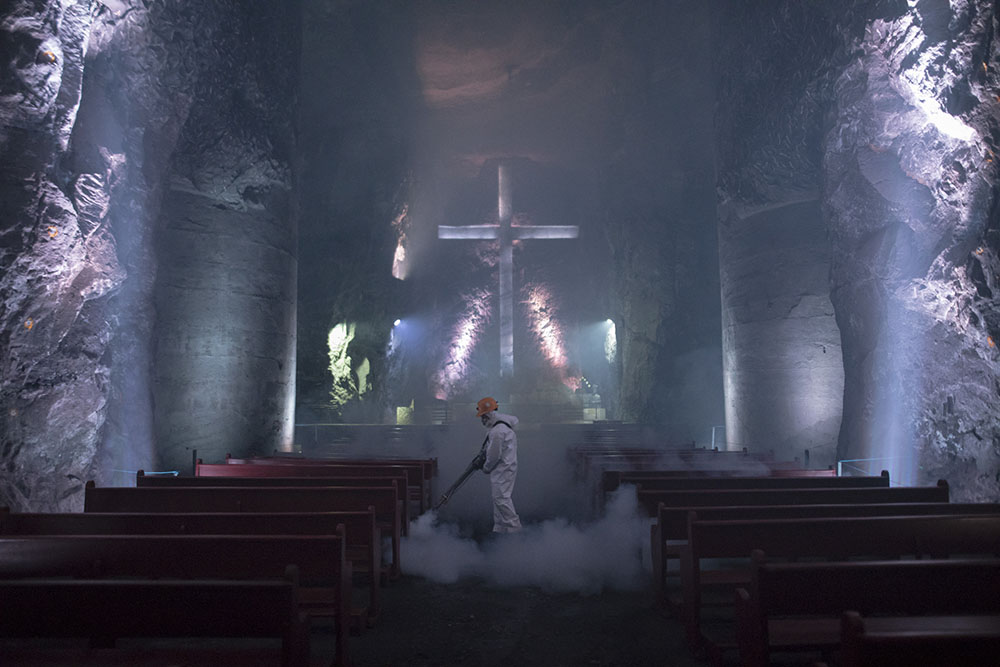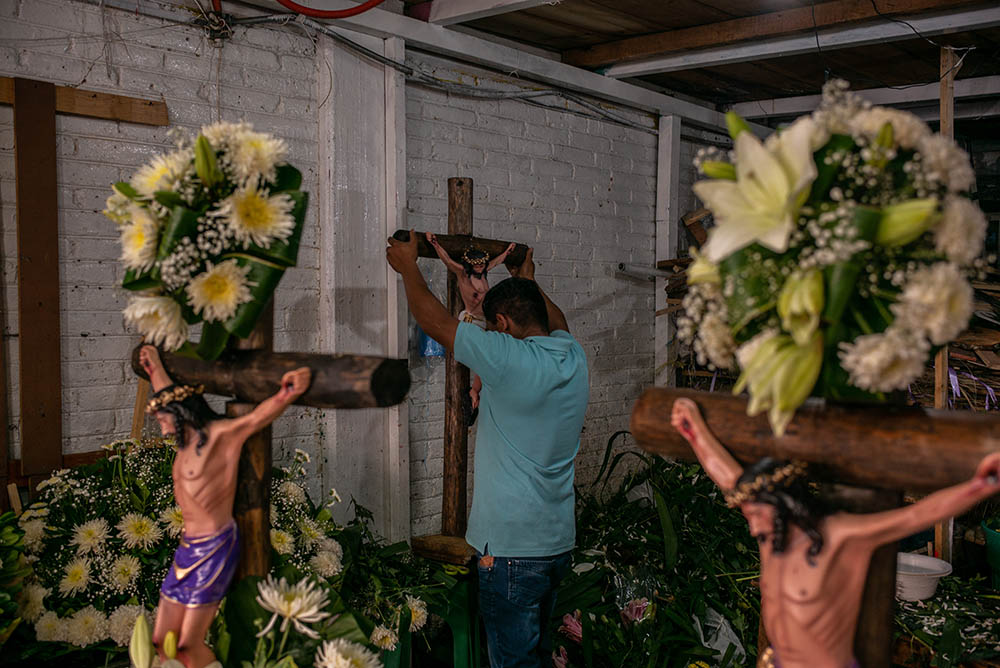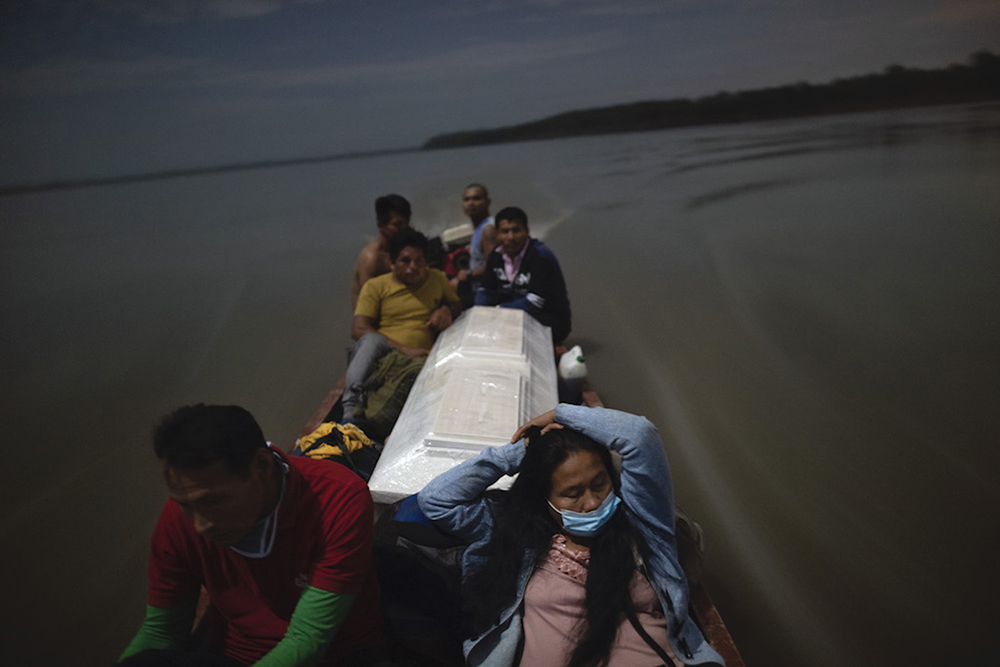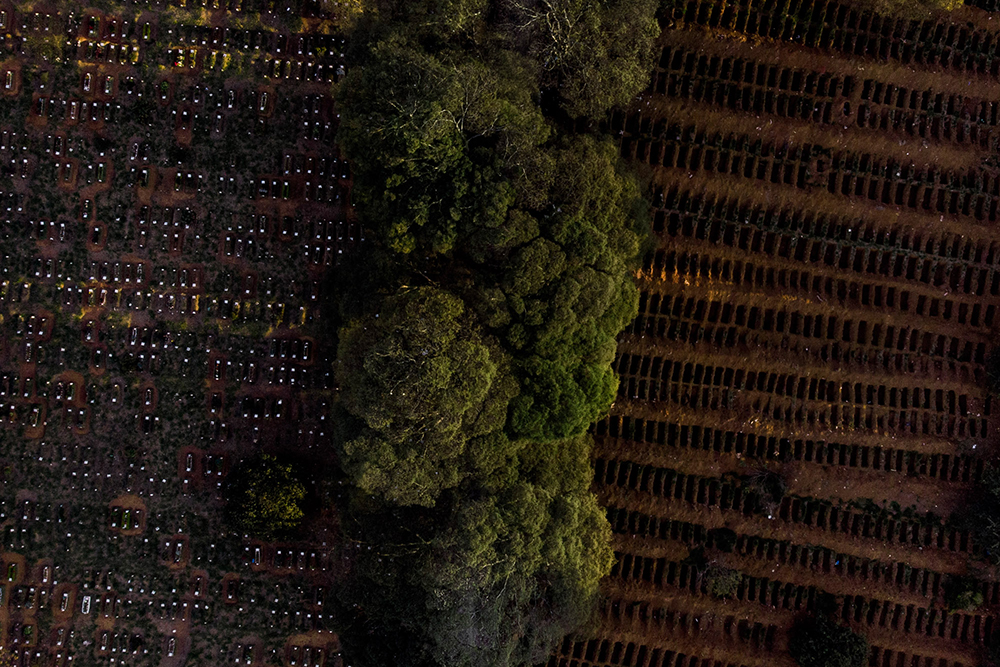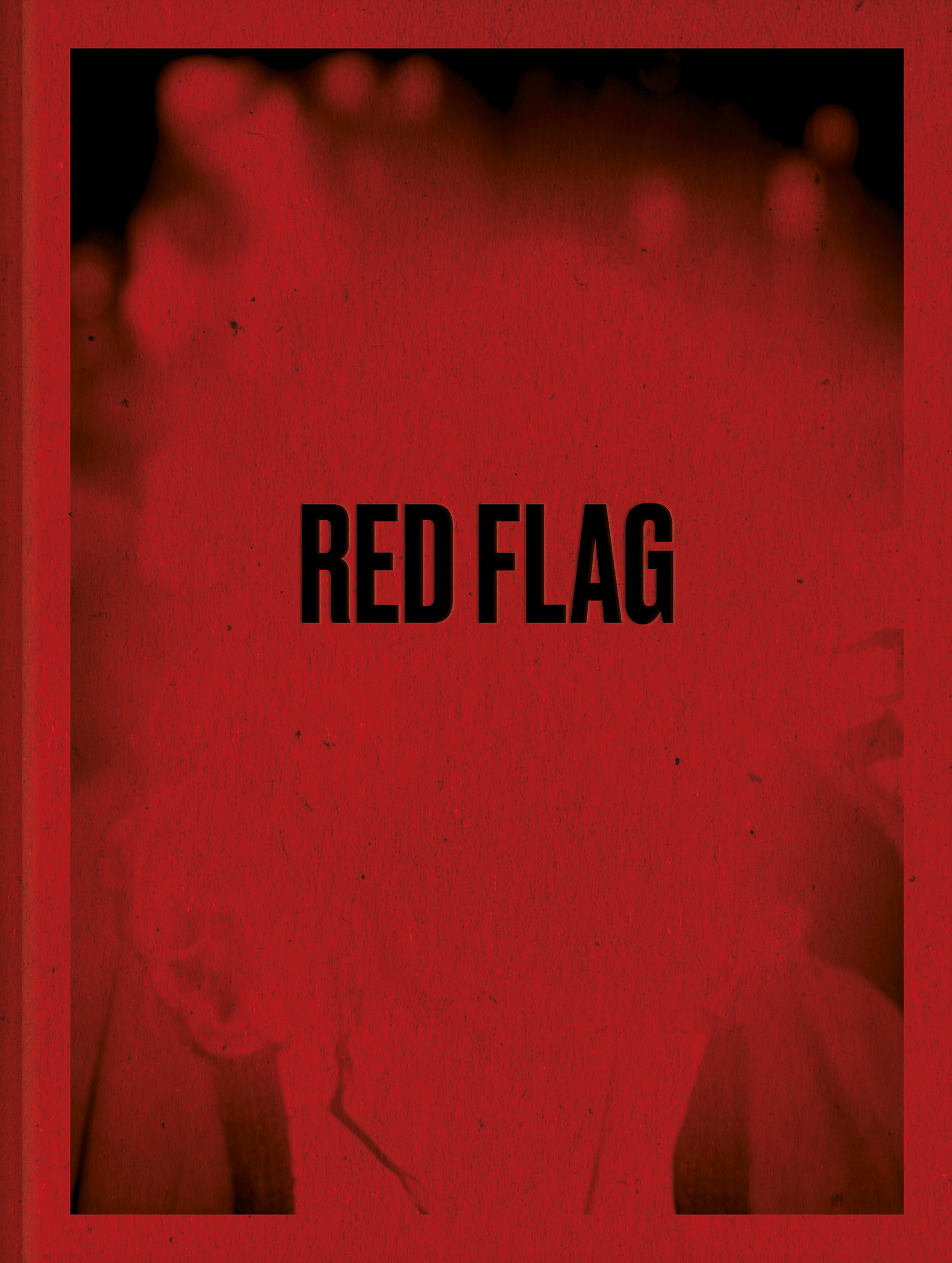2021 Winner
Red Flag
by Covid Latam
Book Award Years
RED FLAG
by COVID LATAM
Winner of the 2021 FotoEvidence Book Award with World Press Photo
COVID LATAM is a collective of photojournalists covering the progress of the Covid-19 pandemic in Latin America. Eighteen photographers, nine men and nine women, covering 14 Latin American countries: Argentina, Chile, Colombia, Costa Rica, Cuba, Bolivia, Brazil, Ecuador, El Salvador, Guatemala, Mexico, Peru, Uruguay, and Venezuela, who are documenting the daily and intimate aspects of life during the pandemic, making visible the most vulnerable communities, their collateral crisis and the deepening of social inequality in the region.
Red Flag, a book with their work will be published by FotoEvidence.
Residents of the Copan Building, the most traditional building in São Paulo, built by architect Oscar Niemeyer, bang pots in protest against Brazilian President Jair Bolsonaro. Many people were already in self-quarantine because of the coronavirus. Schools, universities, shopping centers and fitness centers are gradually closing this week in São Paulo. Brazil confirmed the first death from Covid 19. March 18, 2020. Photo: Victor Moriyama for The New York Times.
Self-portrait with my mother Mónica Alvarez, in the room I lived in as a teenager.
Every day the fear of contagious grew. My mother is a doctor and I enjoy hugging her when she comes back home. When she is not there, her plants are our medicine. July 18, 2020. Quito-Ecuador. Johis Alarcón
Martina Veranea Rodriguez, 87, shows a collage she made of her family members in her apartment in Caracas, Venezuela, on May 8, 2020. Photo: Andrea Hernandez Briceno
Farmworkers gather on a destroyed bus during block of the Pan-American highway during a protest in Villacuri, Ica province, Peru, Friday, Dec. 4, 2020. The farmworkers are asking for the elimination of the law, demanding better wages and health benefits. AP Photo/Rodrigo Abd
At 8:30 pm on the dot, residents make noise with pots protesting against President Bolsonaro for the 15th consecutive day in Rio and in several cities in Brazil. The demonstrations began during the coronavirus quarantine and have intensified with each disastrous statement by the President about the pandemic. Bolsonaro has been labeled internationally as the leader of denialism, for insisting that informal workers must return to work.
During that night's protest, while Bolsonaro was making another statement to the nation, the protesters also shouted from the windows, "dictatorship never again" at the top of their lungs, because this was the day 56 years ago that a military coup left Brazil under a dictatorship for 21 years. Both the retired army captain Bolsonaro and his vice president, army General Raul Mourão once again extolled the military's takeover of the country and denied that it was a coup-. Rio de Janeiro, Brazil, March 31, 2020. Photo: Ana Carolina Fernandes
An older man with Covid symptoms falls down outside the San Juan de Dios Hospital, the main hospital of Guatemala City that treats Covid cases. June, 11, 2020 Photo: Danielle Volpe
Photographer Tamara Merino takes a self-portrait with her son Ikal while playing under the sheets with a lamp. Santiago, Chile was more than 140 days in mandatory quarantine due to the Covid-19 pandemic. Exploring the connection between mother, child, and nature while being in total lockdown with limited exposure to the outdoors, this photograph highlights the vital importance of the environment in society’s collective well-being. Santiago, Chile, March 28, 2020. Photo: Tamara Merino
The partial closure of the Otay Mesa Port of Entry in Tijuan has jeopardized the livelihood of thousands of Mexicans and Americans who live binational lives. In order to get to work on time, they have begun arriving at the port of entry at dawn and sleeping in their cars until it’s their time to cross into the U.S. May, 2020. Photo: Fred Ramos
City workers disinfect a bus stop to help prevent the spread of the coronavirus outside a closed cinema, featuring a mural of film directors, from left: Federico Fellini, Alfred Hitchcock, Luis Buñuel and Lucrecia Martel. Montevideo, Uruguay, Monday, April 20, 2020. Photo: Matilde Campodonico
Volunteer Firefighters of Villa 31 making a rescue. The fires in the neighborhood multiplied during the quarantine. Buenos Aires, Argentina. Photo: Sebastian Gil Miranda
Red flag hanging out of a house in Bogota as a symbol that the inhabitants have no food and no money to buy food or supplies during mandatory isolation for Covid-19. Friday, April 3, 2020. Bogota Colombia. Photo: Federico Rios
My partner looks out the window one afternoon during the first month of lockdown in Bogotá, Colombia. Photo: Fabiola Ferrero
Cuban police officer wears a face mask while on duty in Plaza de la Revolución, almost empty due to the coronavirus pandemic in Havana, Cuba, May 01, 2020.The Cuban government suspended the celebration of May Day, one of the largest annual marches and called to citizens to stay home. Photo: Eliana Aponte
My father Juan is a 76 year old photographer.
Juan has a blind eye and another that walks into the void. With that eye he sees only fifteen percent.
This visual essay is a conversation between a father and a son, a game between two photographers intertwined with poetry and surrealism. One, that almost 40 years ago, photographed the welcome to the world and the childhood of the other. And the other, that photographs the path of the last door that goes from old age to mystery in this time of confinement and pandemic.
Thus we accompany ourselves with the excuse of a coffee, a walk around the block or with the ideas that arise inside "the room of inventions,” where light enters a window and this whole story takes place. Buenos Aires, Argentina. Photo: Pablo E. Piovano
During the months of the rigid quarantine in the city of La Paz, many social problems began to emerged in the streets, people did not have money to support their families and as a form of protest they took to the streets to demand help In the city with name means peace, there was no peace for its citizens. La Paz- Bolivia. Photo: Sara Alilaga Ticona
A worker, wearing a protective suit, disinfects the central nave of the Salt Cathedral in Zipaquira, Colombia. Photo Ivan Valencia
A man holds a cross inside a funeral flower shop in Mexico City. Photo: Alejandro Cegarra
Relatives travel by boat along the Ucayali River, transporting the coffin with the body of Jose Barbaran, who died in the city of Pucallpa at 73 years of age due to Covid 19. Ucayali region, Peru, Tuesday, Sept. 29, 2020. Despite the risk, the family members decided to travel by night four hours in a boat without any light to the village where Jose Barbaran lived, in order to make the funeral and burial of their loved one. Photo: Rodrigo Abd
Aerial view of Vila Formosa Cemetery, which became internationally known after the explosion of death in Brazil. Serial grave digging is a common practice at the location, which usually holds 40 burials a day. The arrival of the pandemic accelerated and brought visibility to a place that was already marked by tragedy. Photo: Rafael Vilela

In the water in Limón, Costa Rica, I connect with the dance my daughter did inside my belly, October 17, 2020. Photo/Glorianna Ximendaz
In Latin America, coronavirus has laid bare extreme inequality in the region, and one symbol of that inequality is the red flag in Colombia. Impoverished Colombians hang a piece of red fabric outside their homes when they no longer have any food – it is a call for help and a reminder that many people live off what they earn from one day to the next and have no safety net. While some families can quarantine safely, others risk hunger and eviction if they stop working even for a day. Those who hang the red flag outside their homes depend on the generosity of others for survival.
In this book, 19 photographers from 14 countries in the region have captured the impact of coronavirus from intimate moments in quarantine with family to raging fires in the Brazilian Amazon. The photographers have witnessed floods, riots, and funerals and watched their parents, children, and siblings struggle with isolation, loneliness, anxiety. The photos, like the red flag, tell a story of desperation and hope – one in which we recognize the role of community and the human desire for connection. Language: Spanish, English and French.

